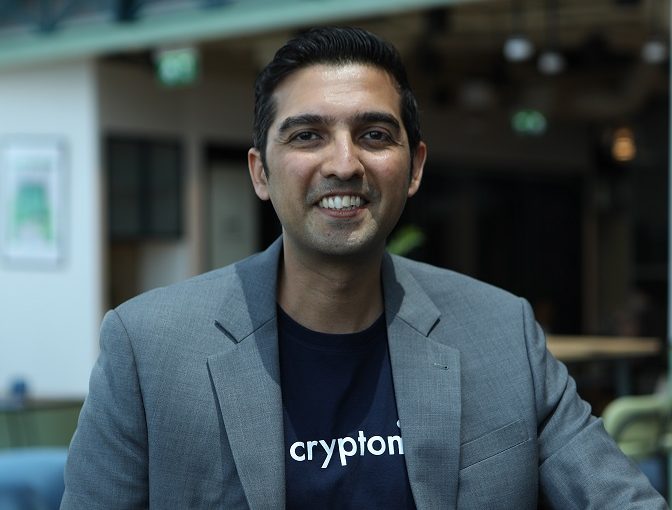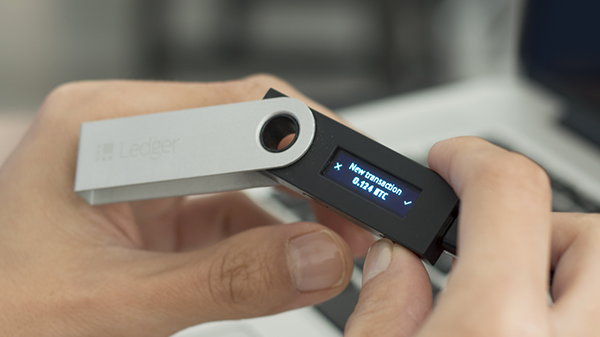The lowdown about Bitcoin, the blockchain, and the future of money.
By Ashima Sethi
From Bitcoin to Ethereum and all the Altcoins in-between, it’s undeniable that we’re living through a financial revolution. So now that the reality of digital currency and digital assets has arrived, I’m sure many of us have wanted to ask: “So what exactly is cryptocurrency? How does it even work? and how do I get involved?” But as the world of crypto is far from the easiest one to fully understand, Masala speaks to one of Thailand’s industry experts, Sanjay Popli, CEO of Cryptomind, for a beginner’s guide.
How did cryptocurrency get on your radar?
I did a bachelor’s degree in Business Systems at Monash University before moving to work in the family textile business. I then completed my master’s at Thammasat University with a focus on Innovation, Entrepreneurship, and Finance. I’ve always had a natural excitement about new technologies, so I was on the internet one day and I stumbled across articles about crypto and went straight into the rabbit hole. Despite the fact that in 2016 people were adamant it was a scam, I saw it as a long-term trend. I then started going to events, meeting people in the industry, and learning about crypto ecosystems before choosing to venture into the industry professionally.
Can you tell us about how your career has evolved?
When I first joined the industry, there wasn’t any regulation in place regarding crypto in Thailand. Then the Securities and Exchange Commission (SEC) launched all these digital asset regulations, so in my previous company, we were helping them push these regulations out. After the 2017 bubble, a lot of people actually left the industry because they believed crypto to be a scam. However, I stayed because I saw real potential that the industry could have. I then met a group of key opinion leaders in the field, we became good friends, and the six of us decided to form a real company that helped businesses with their marketing and brand awareness in Thailand. So this was what we called Cryptomind the 0.0 version.
Since then we formed the Thai Digital Assets Association because we felt that there needed to be an association that was pulling all the industry players together to advocate for what crypto is. We also began organising two annual events: Thailand’s biggest blockchain event, Blockchain Thailand Genesis and Block Mountain in Chiang Mai. The first event we did saw approximately 40 people attend and the largest has been 3,000.
Last year saw some big changes. As professionals in the industry we saw a lot of gaps, for example people losing their investment or wanting to invest but not knowing how, so we decided to expand into holding. We now have Cryptomind Holding Group, and two subsidiaries under that: Cryptomind Advisory, which is a continuation of what we’ve been working on for years, and Merkle Capital, the first digital asset fund in Thailand with total assets under our management standing at approximately USD 10 million. We established the fund to make it easier for people to invest because trading platforms can be overwhelming. We also want to develop an app and set up an academy where people have access to educational material. So we’re just at the starting point right now and it’s an exciting time.
So let’s begin with what exactly is cryptocurrency?
Cryptocurrency can be described as digital money that uses cryptography to protect the people who use it. The best way to understand crypto is to understand what it was created for. The first cryptocurrency created was Bitcoin, founded by a pseudonym called Satoshi Nakamoto, which translates to ‘the origin of wisdom.’ It was created to go against central entities, giving humans the opportunity to transact peer-to-peer without a third party.
What is the blockchain?
Blockchain describes a digital ledger, where individual blocks of information are linked together in a chain. An example of how it works is, there are two villages. The first has no blockchain, so if I want to send you USD 100, we would go to the village head and he would write down the transaction, acting as the central point of keeping the information. Later, if you want this information changed, you can go to him and ask him or pay him off to delete this information. But in a village where blockchain exists, everyone in the village will make a note of the transaction in their ledger. That way, you can’t pay all of them off to get your way. So blockchain technology is really about the distribution of information and its main benefits are traceability and transparency
Why is Bitcoin the most popular out of all the cryptocurrencies?
Bitcoin represents the starting point of crypto. It was the first one and it remains popular because of the ideology behind it. It has its own value, it’s not government controlled, there’s deflation, it’s decentralised, and it’s been around since 2010 so it’s proven itself the longest. When it was first launched, it had almost no value and just to test out the Bitcoin, you’d be asked to fill in some captcha and you’d receive 10 Bitcoin for free. There’s also a famous story about a man who paid for pizza with 10,000 Bitcoins. As time went on, people began using it for peer-to-peer transactions because going to a company like Western Union to send money was expensive. In 2016, it shifted to become more an alternative asset investment because the price went up. Retail investors and corporations began buying it to keep their assets. Despite being created for peer-to-peer transactions, its value proposition has changed and it’s now viewed more as ‘digital gold’ because it’s scarce and finite.
What’s the difference between investing in crypto and trading?
Investing is looking at the fundamentals of a project and of the currency you’re holding versus daily trading where you have a stop-loss point, or take profit point, and you look at the chart fully. I’m more into investing, so picking ‘hidden gems,’ what we recognise as new ‘stock’ that hasn’t appreciated in value yet.
What is the step by step process of investing?
The first step is knowing what you’re investing in. This is really important because if someone invests because they’ve heard their friends have invested, as soon as the value fluctuates, they will panic and not know what to do and end up losing money. So you really have to understand the whole concept, why it was created in the first place, have a clear target price and exit point. I recommend first reading about Bitcoin (there’s a book called The Bitcoin Standard by Saifedean Ammous) and then slowly moving onto other Altcoins. Look into these parts: how you think it might be growing, why it has value, and why corporations are buying it.
What kind of exchanges or wallets should I look for?
The beginner’s way is opening an account on an exchange. In Thailand all the exchanges that accept Thai Baht are regulated by the SEC, so if there’s a problem you can actually file for investor protection. Examples include Zipmex, Bitazza, and BitKub. Once you open an account, link it to your bank and deposit money onto the platform to buy crypto. This is the amateur way to invest but it has a much easier user experience.
Bitcoin was designed so that people could keep their assets without a third party, so that’s where the hardware wallet comes in, which uses a private key (pin code) and a public address that functions as your account number. There’s a saying that goes: ‘not your key, not your coin’ so it’s imperative to safekeep your private key because there’s no way anybody can help you if you lose it. There’s no ‘forgot my password’ option.
What are the differences between wallet types?
A hot wallet is when you keep it on an exchange or in an online wallet. A cold wallet or hardware wallet is one you can disconnect. Examples of this are physical Ledger wallets that look like USBs that use storage mechanisms to store private keys you can use to access your crypto.
What are some things first-time investors should be wary of?
In the crypto asset world, there’s a lot of risk involved. The market is so small, it stands at approximately USD 1.8 trillion, while gold is around USD 12 trillion, and because of this the price tends to fluctuate a lot more. Once crypto becomes more mainstream the pricing fluctuation will decrease over time but what investors need to understand is their risk appetite level. If you have a high level of risk appetite, you can invest in crypto. Also if you’ve invested in a lot of assets, you can diversify into crypto at maybe 1-3 percent. If it turns into 10x of your portfolio, that’s huge growth but if that 1-3 percent disappears, it’s a super minimal loss, so it’s really about diversification strategy.
What is considered a good time to buy?
A good time to buy is when people understand what they’re buying [laughs]. It’s a billion dollar question! My advice is if you want to buy and save, go for Bitcoin or the other top performing coins.
Apart from Bitcoin what are some of the other big coins?
Ethereum is a blockchain-based platform that supports the world’s second largest cryptocurrency. The concept of a coded ‘smart contract’ runs on this blockchain and it can be used for peer-to-peer loans, paying bills, and more, and it fits into decentralised finance, where people can collateralise their assets. Think of Ethereum as a city where people can build things like trading platforms and lending platforms, but how the value of Ethereum grows is related to how much is built on it, so everytime somebody builds, they have to pay a fee, kind of like a tollway. There’s USD 40 billion in assets running on Ethereum right now.
How does a smart contract work?
Let’s say we make a physical contract where I lend you THB 100,000 and later you default on that contract, we have to go to court and there’s this whole process involved. In the crypto world you don’t have to go to court as everything is done through the coded smart contract. If you violate the contract, you’ll automatically get punished within the agreements of the contract, so it’s actually safer than human transaction.
If you want to invest in Altcoins, how can you better understand what they do?
Always think about the utility that the coin is bringing to the system. ‘White papers’ are prospectus documents that explain a coin’s vision and what it wants to do. They’ll talk about the tech part, the investors, the team, almost like a startup pitch deck. If the project has been around for a while, you can read about it on Medium. Try to gain the knowledge of three parts before investing: financial knowledge, tech knowledge, and economic knowledge.
In your opinion, why is crypto gaining so much popularity?
Crypto is probably the best performing asset class over the last decade, outperforming everything from real estate to stocks. Decentralisation is a big thing, it means if I want to hack into a system then I’d have to hack into 51 percent of it and that’s what keeps it super secure. There’s also censorship resistance, for example, like WikiLeaks when the U.S. government banned their donations, they decided to accept Bitcoin instead so nobody could stop them. There’s portability, you can take your assets with you, and the trend of the world influencers like Mark Cuban, Elon Musk, and Jack Dorsey getting into crypto has also justified the belief in it.
How is it taking off in Thailand specifically?
Globally it’s a phenomenon and this is reflected in the growth rate in Thailand, which is probably about 30-40 percent a year in the volume of trading cryptocurrency. Before we had only a handful of companies, but now there are 40-50. When COVID arrived, people began moving towards becoming a more cashless society, mass media were reporting about crypto, people were finding new ways to earn income, so I think those were all contributing factors.
What are your thoughts on India trying to ban cryptocurrency?
The vision of the Indian government might be a bit short-sighted but they probably have concerns about things like black money, money laundering, and they need regulations in place. However, I think eventually all countries will succumb to it somehow. Crypto is too big to ignore. While India is trying to ban it, in New Zealand, pension funds are investing five percent into Bitcoin. Miami, U.S. wants to become a global crypto capital, and if you look at Thailand, I just went down South and Koh Phangan is a full-fledged crypto island now.
What are NFTs and why are they gaining popularity?
A non-fungible token or NFT is a token that certifies a digital asset to be unique. For example, let’s say you do an art piece, with an NFT you can actually see that it’s the original piece of art and nobody can doubt it because it’s all coded onto the blockchain. It works for collectibles, art, digital land, and gaming items too. NFT works as a patent on music as well, so let’s say someone uses my song, I’ll know and they have to pay some kind of fee. It’s meant to help creators benefit from their creations.
As an industry insider, what are your predictions for the year to come?
With the global situation, I feel like we’ll continue to see high growth in the crypto sector until end of the year. As the Federal Reserve continues to print money, borrowing future funds and devaluing the currency, crypto is the perfect thing to rival that. Trends on the rise are NFTS and security tokens, where there will be commercial properties doing token sales, where you hold that cryptocurrency and get dividends out of that asset that has a real world backing. We will also see fiercer competition going up against Ethereum. Also, now that Coinbase, one of the world’s top exchange companies, has been listed on NASDAQ I think crypto is definitely going to be more accepted by the masses.










